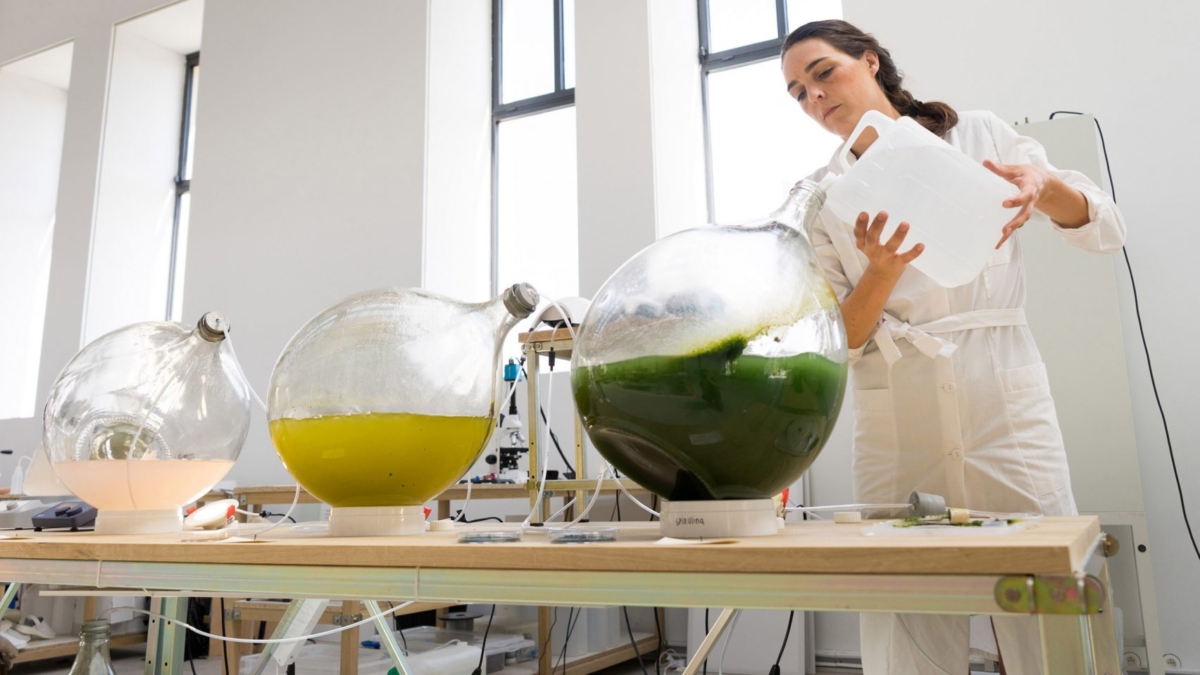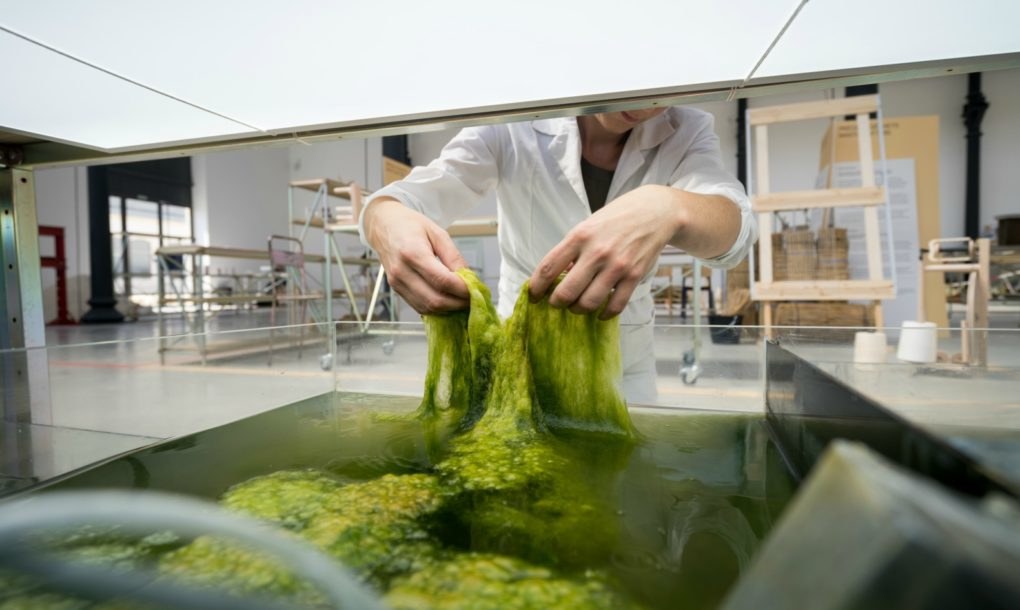
Designer Eric Klarenbeek and Maartje Dros have developed a bioplastic derived from algae that is said to be a viable alternative for non-biodegradable plastic.
“In our research, we are concerned with binding carbon to biomass and converting algae into a biopolymer,” saidKlarenbeek and Dros. “Instead of using potatoes as a biopolymer, which is at the expense of our food and land, you can cultivate a macroalga [seaweed] in the sea. As it grows, it filters the seawater, absorbing co2 and producing a starch that can be used as a raw material for bioplastics or binding agents.”

Cultivating algae to dry and process in a lab, the algae bioplastic created is then used by the designers to 3D print objects such as shampoo bottles, tableware, rubbish bins, and much more.
Setting up a bio-laboratory called Algae Lab at the luma Foundation in Arles, the designers showcased their work by 3D scanning historical glassware from the collection of the Musee Departemental in Arles to 3D print replicas made of algae bioplastic.


To learn more about the algae bioplastic, click the link below.





